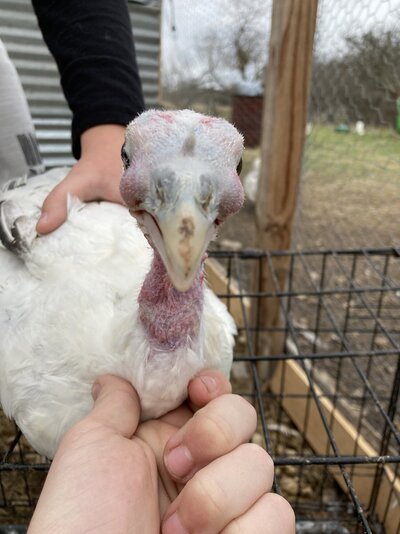AidanOshields
In the Brooder
- Aug 30, 2020
- 41
- 36
- 46
My turkey is a royal palm and I don’t know how old she is but she’s about the same size as my adult female bourbon red hen. But I just noticed today she has bumps sticking out of her face and I was wondering what it is and how to fix it. I think it’s a respiratory infection from what I’ve researched but what’s the best way to treat that ? Pictures below pleas help










